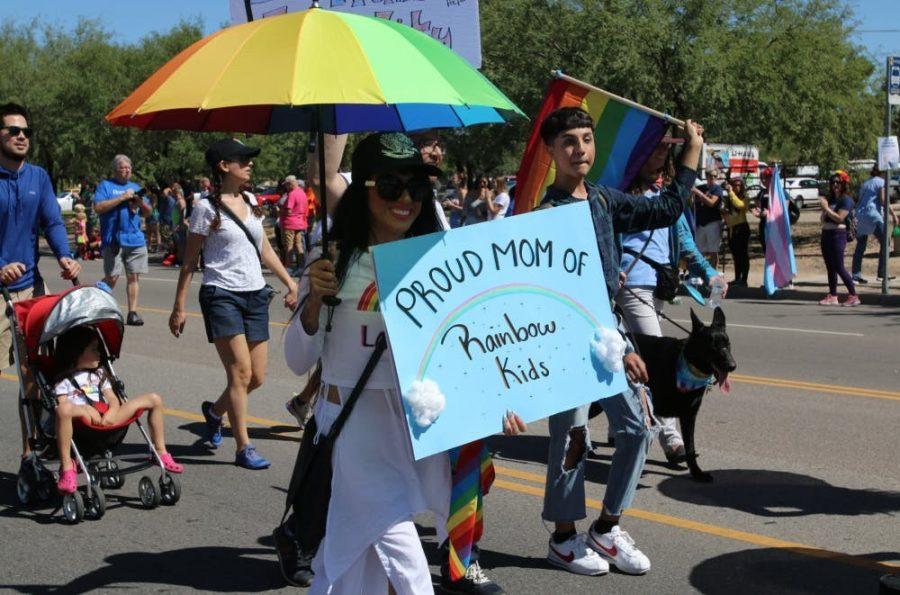On June 26, 2015, cheers erupted outside the U.S. Supreme Court as rainbow flags poked out above the crowd. The Court had just ruled on Obergefell v. Hodges, widely regarded as a landmark case in the advancement toward equality for LGBTQ+ Americans.
Among the minority dissenting in the 2015 case were Supreme Court Justices Clarence Thomas and Samuel Alito, who recently wrote a statement again calling the outcome of Obergefell v. Hodges into question. The statement was prompted in part by the denial of a request to hear a case from Kentucky clerk Kim Davis.
Davis refused to issue a marriage license to a same-sex couple and was sued as a result. She attempted to claim qualified immunity, which would protect her from civil suits given her status as a government worker.
Thomas and Alito agreed to dismiss Davis’ case, but used the opportunity to criticize the Obergefell outcome, claiming it unfairly labeled those with orthodox religious beliefs as bigots. They argued that instead the decision should have been left up to states to decide so that “they could have included accommodations for those who hold these religious beliefs.”
“By choosing to privilege a novel constitutional right over the religious liberty interests explicitly protected in the First Amendment, and by doing so undemocratically the Court has created a problem that only it can fix,” Thomas and Alito wrote in their statement. “Until then Obergefell will continue to have ruinous consequences for religious liberty.”
This clear condemnation of Obergefell raised concerns from LGBTQ+ Americans and allies, especially as it directly followed the recent Supreme Court nomination Amy Coney Barrett, who refuses to voice her stance on marriage equality in her confirmation hearings.
Joe Tusha is a law student and president of Pride Law, an organization of University of Arizona law students devoted to community advocacy and LGBTQ+ student professional development. For Tusha, Thomas and Alito’s statement was not surprising so much as disheartening.
“I think a lot of people who consider themselves allies or certain members of the community thought the battle had kind of been won,” Tusha said. “But those of us who are more engaged in the community know that we have been under attack since Obergefell was decided. It doesn’t surprise me in the least, which is terrible.”
RELATED: Your Arizona ballot, explained
Mikah Rosanova, a sophomore law major and member of the Queers United Coalition on the UA campus, said the news was especially unnerving with the U.S. facing the possibility of having a 6-3 conservative justice majority presence in the Supreme Court should Barrett be confirmed.
“It’s very stressful because [Obergefell is] one of very few protections that queer people have in writing,” Rosanova said. “I think I saw it coming eventually, but I really didn’t think it was going to happen in 2020 so soon after it was passed. It’s only been 5 years.”
Rosanova explained that we are living in a complex time in which LGBTQ+ people are facing a dichotomy of both increased awareness met with increased resistance.
“It’s arguably safer than it’s ever been to be openly queer, but at the exact same time, I’m hearing louder voices than I think I’ve heard ever that are strongly opposing trans rights specifically and gay marriage, anti-discriminatory laws and inclusivity,” Rosanova said. “I think [Thomas and Alito’s] statement is similar to the president refusing to condemn white supremacists. It enables the actions of the groups that aren’t being condemned or are being … sympathized with from a government entity. I have a feeling it’s going to embolden those voices that would have been silently anti-gay or trans and that those voices are maybe going to get louder.”
According to Tusha, Thomas and Alito’s statement was a very deliberate political move with potentially dangerous consequences, including the targeted harassment of LGBTQ+ people. Contrary to the common belief that Supreme Court Justices are neutral, bipartisan figures, Tusha described them as political and invested in their own agendas.
“Bringing up Obergefell wasn’t because it was relevant,” Tusha said. “They set out to make it known that they do not like queer people; they do not respect them as humans who deserve to get married. This is not about religious liberty, because if it was, it would be such a weird coincidence that the only religious liberty the Court is ever concerned with is that of white Christians.”
In addition to concerns directly related to Obergefell, Rosanova emphasized that the scope of LGBTQ+ advocacy transcends this one case and that there is still much work to be done in expanding inclusivity.
“As a trans person, I’m still like ‘What does that mean to me?'” Rosanova asked. “Same-sex marriage, in the legal terms, is very much on a binary and there’s no room for that separation from it. So there’s this culminating worry that as a genderqueer person I’m still not legally defined.”
Looking toward the future, both Tusha and Rosanova expressed optimism given the increased visibility from the LGBTQ+ community. However, with an election quickly approaching and the Supreme Court dynamics rapidly changing, LGBTQ+ rights are in a precarious position. Rosanova fears the situation may get worse before it gets better.
Despite his frustration with the current political climate, Tusha urged people to actively participate in the U.S. political system.
Tusha said, “you can’t affect change on a system if you’re not participating in it. … Disengagement doesn’t get you anywhere better.”
Follow Hillary Schiff on Twitter









